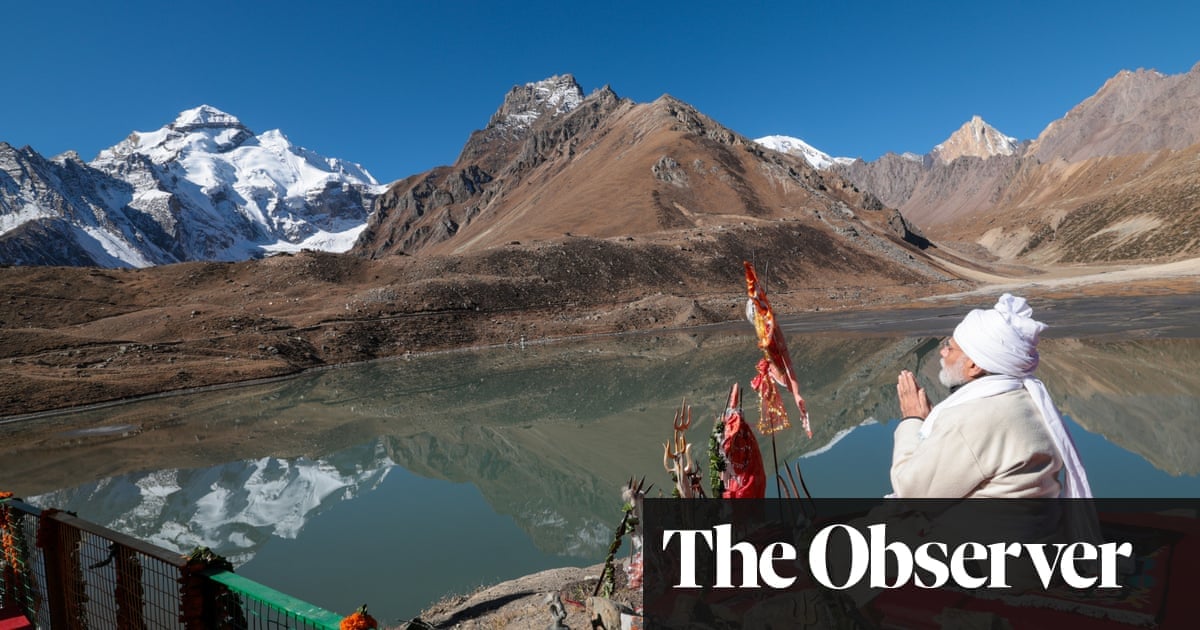A region known as ‘God’s land’ offers a glimpse of the future if Indian prime minister’s BJP party retains its power
For centuries it has been known as the “land of the gods”. Stretching high up into the Himalayas, the Indian state of Uttarakhand is home to tens of thousands of Hindu temples and some of the holiest Hindu pilgrimage sites.
Yet as Hindu nationalism has become the dominant political force in India under prime minister Narendra Modi over the past decade, the government is accused of weaponising Uttarakhand’s sacred status for politics, making the state a “laboratory” for some of the most extreme rightwing policies and rhetoric targeting the Muslim minority.
As India’s mammoth election starts on 19 April, stretching across a six-week period, Modi and his Bharatiya Janata Party (BJP) are expected to return to power. Over the past decade, as India has grown to become the world’s fifth-largest economy, Modi’s government stands accused by rights groups of growing authoritarianism and pursuing Hindutva [Hindu-first] policies that have eroded the rights and freedoms of minorities, in particular India’s 200 million Muslims.



This is the best summary I could come up with:
It was at the Haridwar gathering that the idea of Uttarakhand being a Hindu Dev Bhoomi, [God’s land], began to gain public prominence: that of a holy state just for Hindus, where Muslims had no right to exercise their religion or, in the eyes of some, exist at all.
The same priests who took part in the dharma sansad warned that “Dev Bhoomi has come under the control of jihadis”, a thinly veiled slur for Muslims, and called for the state to be protected by any means necessary.
“Just like only Muslims are allowed in Mecca and Medina due to Islamic tradition, we also demand this land be exclusively for Hindus,” Swami Darshan Bharti, president of Devbhoomi Raksha Abhiyan, the organisation behind the Haridwar event, told the Observer.
Uttarakhand is known as a place of rugged natural beauty, stretching from Haridwar and Rishikesh, which thrum with pilgrims and travellers, to remote villages far up in the Himalayas, peaks which Hindus believe are the abodes of their gods.
The fear was palpable in Haldwani, a small ramshackle city in Uttarakhand which has an unusually high proportion of Muslim residents and in February experienced some of the worst violence the state had seen in years.
While a few of the shopkeepers returned – agreeing, among other things, to no longer offer prayers in the town – Vikas Verma, a local leader of Bajrang Dal, said he was continuing his fight to drive out any remaining Muslim businesses.
The original article contains 1,775 words, the summary contains 245 words. Saved 86%. I’m a bot and I’m open source!